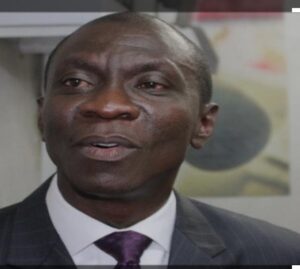Attorney General’s Power to Withdraw Cases: Prof. Kwame Gyan Explains.
 In a recent discussion, Professor Kwame Gyan, a senior lecturer at the University of Ghana School of Law and head of Kwame Gyan and Associates, addressed the Attorney General’s authority to withdraw charges against individuals in Ghana. He emphasized that under Article 88 of the 1992 Constitution, the Attorney General holds the exclusive right to initiate and discontinue prosecutions on behalf of the state.
In a recent discussion, Professor Kwame Gyan, a senior lecturer at the University of Ghana School of Law and head of Kwame Gyan and Associates, addressed the Attorney General’s authority to withdraw charges against individuals in Ghana. He emphasized that under Article 88 of the 1992 Constitution, the Attorney General holds the exclusive right to initiate and discontinue prosecutions on behalf of the state.
This constitutional mandate is further detailed in Section 54 of the Criminal Procedure Code1960 (Act 30) which introduces the concept of nolle prosequi. Derived from Latin nolle prosequi means I do not want to continue the prosecution. It allows the Attorney General to indicate, either in open court or through written communication, the decision to cease prosecution in a particular case. Upon such an entry, the accused is discharged though this does not prevent future proceedings on the same facts.
Professor Gyan highlighted that the Attorney General’s discretion in this matter is not subject to judicial inquiry or review, unless there’s evidence of discretionary power abuse. He also noted that the law does not require the Attorney General to provide reasons for withdrawing charges. This framework ensures that the Attorney General can exercise judgment in prosecutorial decisions without external interference.
These insights were provided in response to questions about the propriety of the Attorney General withdrawing charges against individuals such as Johnson Asiama, Stephen Opuni, and Seidu Agongo. Professor Gyan’s explanation underscores the legal provisions that grant the Attorney General the authority to make such decisions, reinforcing the independence and discretion inherent in the role.



психиатр клиника нижний новгород психиатр клиника нижний новгород .